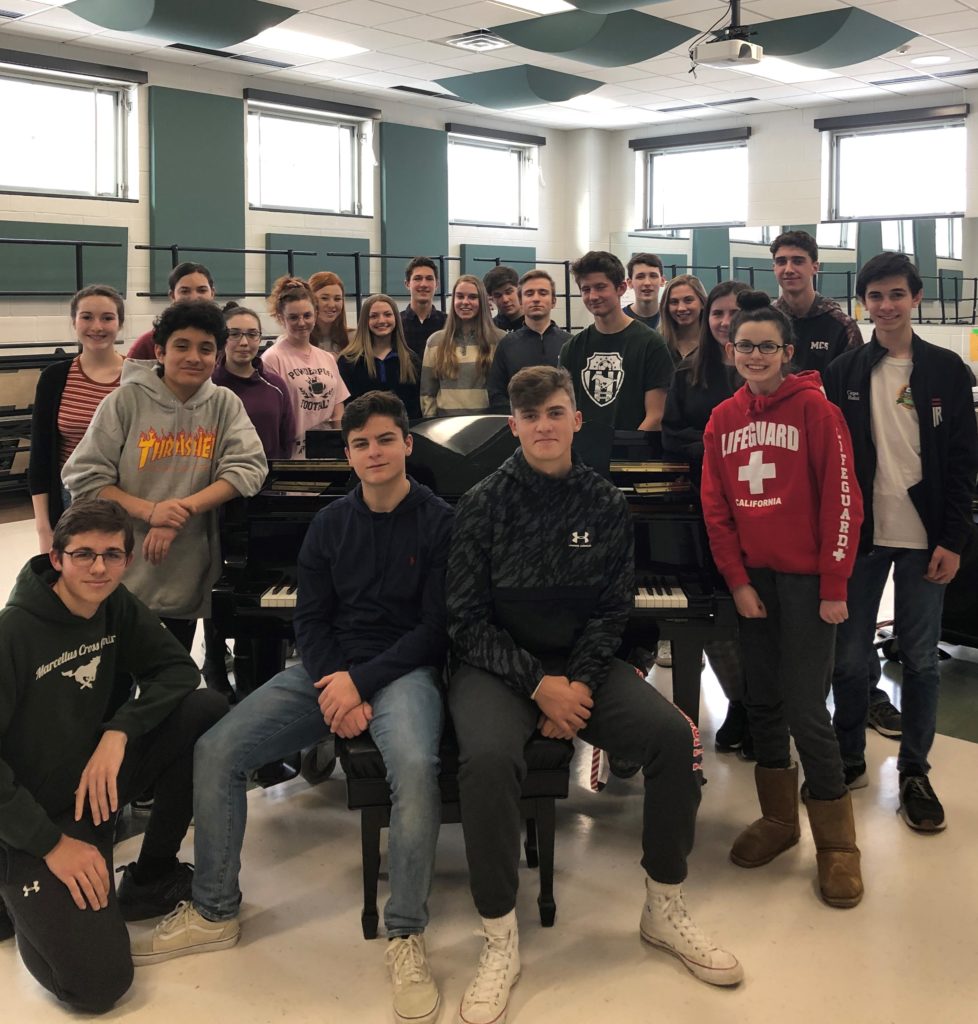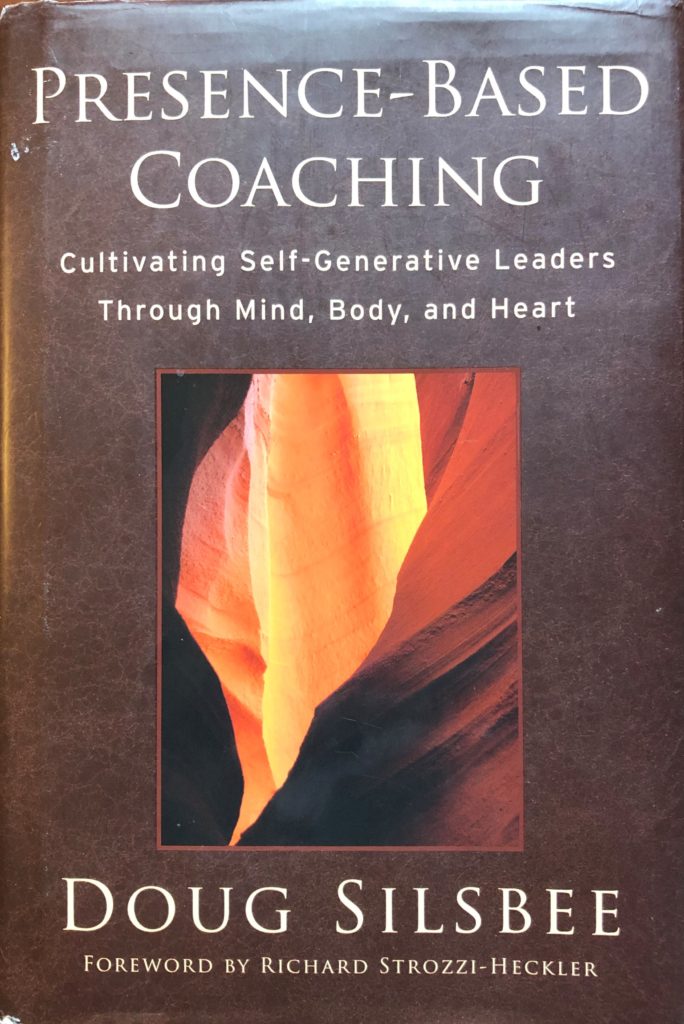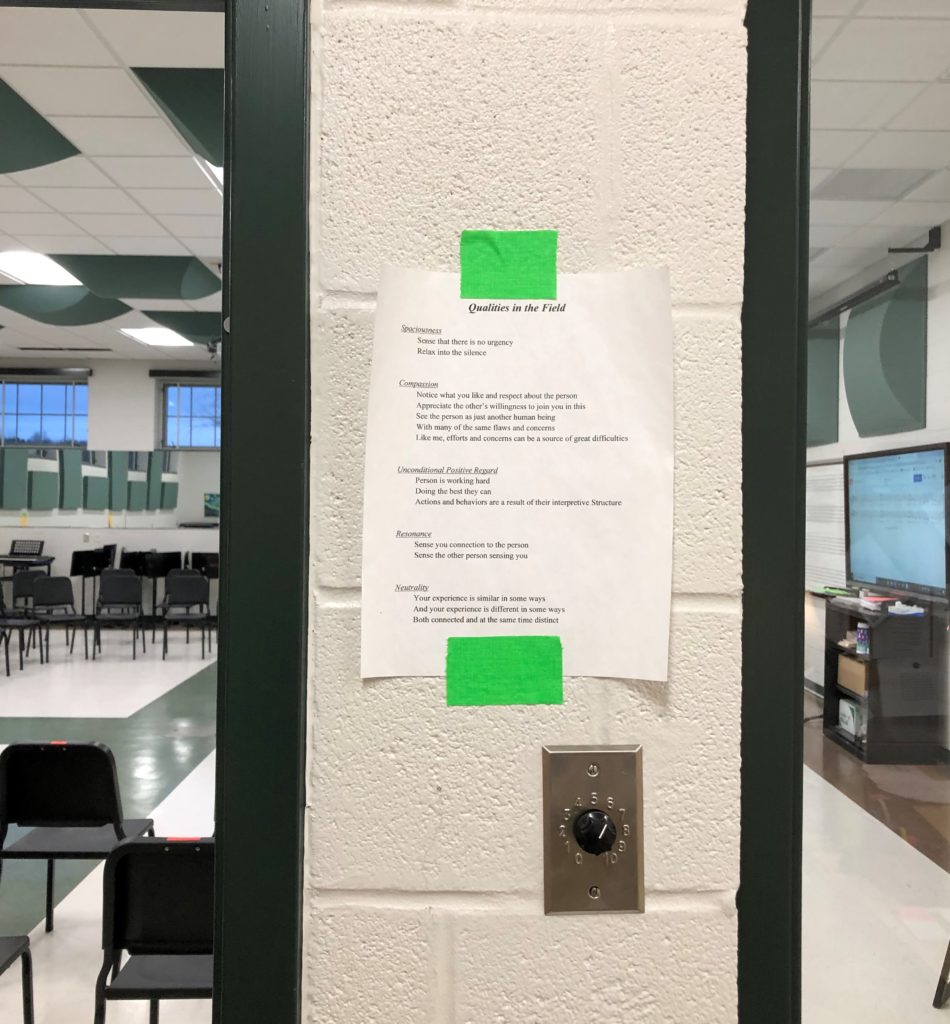“There is no feeling in a human heart which exists in that heart alone –
which is not, in some form or degree, in every heart”.
George MacDonald
I first heard ” Tune to your Trios” during an Onondaga County Music Educators Association (OCMEA) High School Music Festival many years ago. The guest director asked the choir to listen to each side as they sang. I now ask my students to be aware of each other and Tune to the left and the right. Or by listening to the front and listening to the back of the choir. Tune to your trios is a phrase that is now a staple phrase in my classroom. This awareness helps my students sing together and strive for a unified sound and a supportive rehearsal atmosphere.
This phrase also came to mind as we navigate in and through the COVID-19 pandemic. It is a must that during this time, we all become aware of each other and “tune” to each other. We are all experiencing dramatic changes in our lives, and as individuals, we respond in different ways. My students are also unique individuals who react and respond to current challenges and changes in their way. This awareness is essential as I now communicate and relate to my students through Distance Learning. I miss seeing the students – they are a kick.

Marcellus High School Select Choir
Doug Silsbee calls our reactions and responses to events and interactions our Interpretive Structure (Silsbee 2008, p.43). An Interpretive Structure is unique to each individual and can become challenging and limiting as we work with others. Due to our habits, we do not see or comprehend other possible options and tend to exclude many factors and aspects of understanding because of our conditioned responses.

To help reorient ourselves and create stronger relationships with each other, Silsbee offers five approaches that can improve connections with our families, colleagues, and our students. These are the qualities we can bring to our awareness as we work and relate with others.
The Five Relational Fields
Spaciousness – The absence of our conditioned and learned responses and habits – silence is OK.
Compassion – Compassion is our awareness and recognition of our shared humanity.
Unconditional Positive Regard – This is our support and acceptance of others – our ability to differentiate between a person and their actions.
Resonance – This focuses on active listening that improves mutual understanding, but may not lead to agreement.
Neutrality – We try not to have a plan. We strive for no attachment, investment, or desire for a particular result. We acknowledge that we are both connected and distinct from the other person.
This past year, I incorporated the Relational Fields tactics into my teaching and social interactions with great success. I adapted Silsbee’s Five Relational Fields for the classroom and made an outline that I display on the wall in my office. This outline reminds me to be aware of what I may bring to a conversation or discussion and helps me foster better interactions with students and colleagues.

Relational Fields in Action at School
When a quiet student suddenly withdraws during a rehearsal or lesson, I offer Compassion – Like me, their efforts and concerns can be a source of difficulties.
When a colleague is expressing a concern or challenge they are experiencing at school (or home), I offer Resonance – In essence, I seek to connect with the person with active listening and empathy.
When a choir member comes in to talk to me about a concern over their class average, I offer Neutrality – Our shared experiences are both similar in some ways – and different in other ways.
Relational Fields in Action through Distance Learning
More recently, I have found the Relational Fields to be valuable as I work with my students through Google Classroom, Google Meet, Zoom, and email. As we work in Zoom, I ask students to be active in the class discussion and ask questions when needed (Resonance).
But if some students do not feel comfortable (Spaciousness), I ask them to find a way they can show me they are engaged in the discussion and understand the material (Neutrality).
There are also a few students who have understandably shut down (Compassion), and I have been reaching out through email and calling home with Unconditional Positive Regard.
Conclusion: Tune to Each Other
I encourage you to incorporate the five Relational Fields into your professional and personal lives. Especially now, when we and our family members, students, and community navigate through these fluid and challenging times. Spaciousness, Compassion, Unconditional Positive Regard, Resonance, and Neutrality are ways we can tune to each other, and help us work through, and come out stronger on the other side of the COVID-19 pandemic.
Leading Voices Online Meeting
Our next online meeting will be held on Monday, March 30, at 7:00 PM Eastern Standard Time, and will last for about a half an hour. If you are interested, you can email me at or use the link below to join the meeting.
https://meet.google.com/bsk-wfrg-dxv?hs=122
References:
Silsbee, Douglas K., and Richard Strozzi-Heckler. Presence-Based Coaching: Cultivating Self-Generative Leaders through Mind, Body, and Heart. San Francisco, CA: Jossey-Bass, 2008.


Leave a Reply
You must be logged in to post a comment.